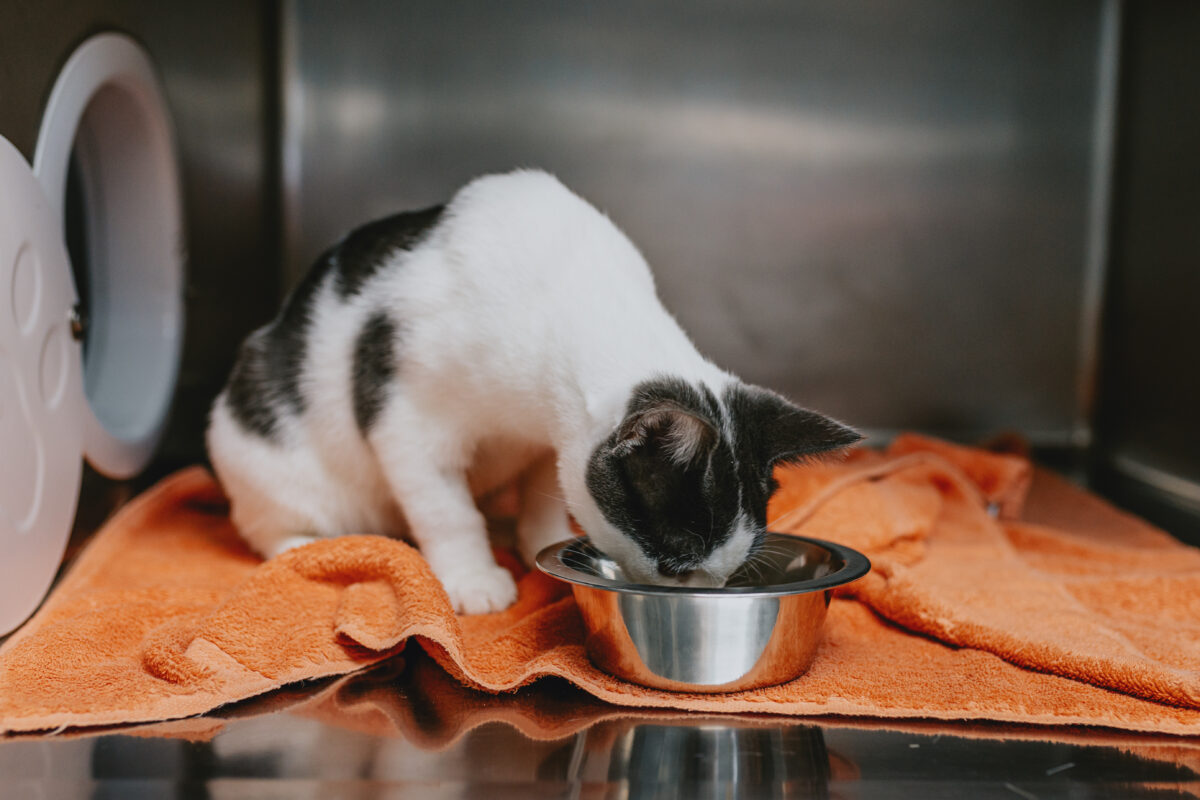Just like people, cats and dogs can suffer from food allergies. While not as common as environmental allergies, food sensitivities can cause uncomfortable symptoms and impact your animal’s quality of life. Sometimes animals can have both environment and food allergies, and it can be hard to differentiate between the two. Knowing the signs and how to manage food allergies can help keep your furry friend happy and healthy.
Common food allergens
The most frequent food allergens for cats and dogs include:
- Proteins: Beef, chicken, dairy, eggs, fish
- Grains: Wheat, corn, soy (less common)
- Other ingredients: Certain additives, artificial colours, or preservatives
It’s important to note that it’s often the protein source, not the grain, that triggers an allergic reaction.
Signs & symptoms
Food allergies can affect animals in a variety of ways. Here’s what to watch for:
- Skin issues: Itching, redness, rashes, frequent scratching, ear infections, hair loss
- Digestive upset: Vomiting, diarrhea, excessive gas
- Behaviour changes: Discomfort, restlessness, over-grooming
If your furry friend is showing persistent symptoms, it’s time to talk to your veterinarian.
How food allergies are diagnosed
The gold standard for diagnosing food allergies is an elimination diet trial. This involves feeding a diet with a new protein—one they’ve never eaten before—for eight to 12 weeks. If symptoms improve and then return when the old food is reintroduced, a food allergy is confirmed. Serum allergy testing in also an option and is as reliable as the elimination diet trial.
Treatment and management
The best treatment is avoiding the allergen. Your veterinarian may recommend:
- Veterinary-prescribed food tailored for sensitive pets
- Homemade diets, carefully balanced under veterinary guidance
Additionally, supportive care—like medicated baths, supplements, or medications—may help manage symptoms during the transition.
Read the blog “Pet Allergies and How to Manage Them” for additional tips.
Food allergies can be frustrating for both animals and their people, but with patience and the right veterinary support, most animals can thrive on a new diet. If you suspect a food allergy, reach out to your veterinarian.
If this information was helpful, please help us continue to educate about pet health and well-being by making a donation. As a registered charity that does not receive annual government funding, the Ontario SPCA and Humane Society depends on the generosity of donors to change the lives of animals in need.

